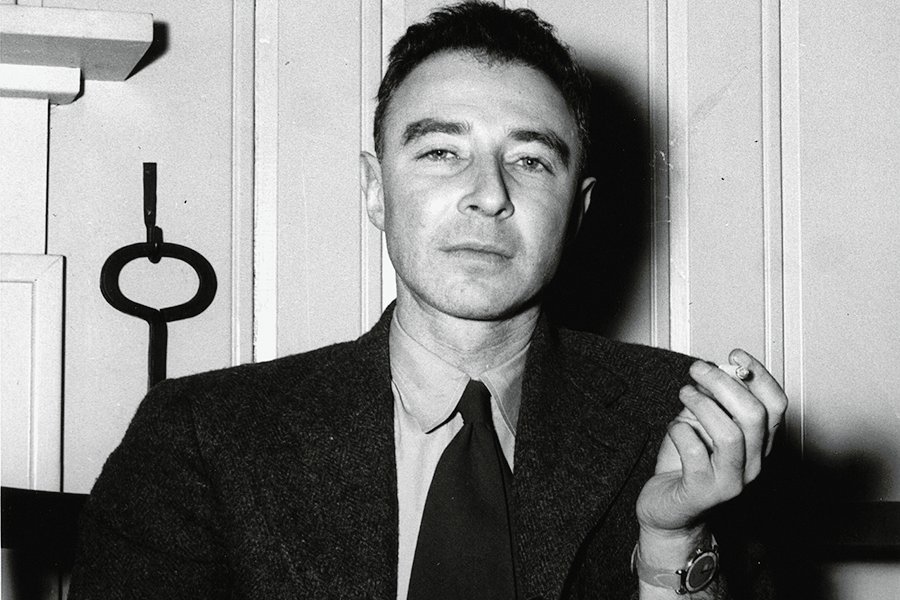J. Robert Oppenheimer stands as one of the most enigmatic figures of the 20th century, leaving an indelible mark on history as the scientific director of the Manhattan Project. His contributions to physics and his role in the development of the atomic bomb have sparked both admiration and controversy. In this comprehensive article, we delve deep into the life, work, and legacy of Oppenheimer, exploring his scientific achievements, his complex personality, and his enduring impact on the world.
Early Life and Education
Born on April 22, 1904, in New York City, J. Robert Oppenheimer was raised in a family of privilege and intellect. His father, Julius Oppenheimer, was a wealthy textile importer, and his mother, Ella Friedman, was a painter. From an early age, Oppenheimer displayed a keen intellect and an insatiable curiosity about the natural world. He attended the Ethical Culture School in New York City before enrolling at Harvard University at the age of 18.
At Harvard, Oppenheimer distinguished himself as a brilliant student, earning a degree in chemistry in just three years. He then traveled to Europe to pursue graduate studies in physics, studying under renowned scientists such as Max Born and Wolfgang Pauli. His time abroad proved transformative, shaping his worldview and solidifying his passion for theoretical physics.
Theoretical Physics and Academic Career
Upon returning to the United States, Oppenheimer embarked on an illustrious academic career, holding positions at institutions such as the University of California, Berkeley, and the California Institute of Technology. He made significant contributions to the field of theoretical physics, particularly in the areas of quantum mechanics and quantum field theory. His work on the theory of neutron stars, black holes, and quantum electrodynamics earned him widespread acclaim and established him as one of the leading minds in the field.
Oppenheimer’s academic pursuits were not without controversy, however. His outspoken political beliefs and associations with leftist groups drew the attention of government authorities, who viewed him with suspicion during the Red Scare of the 1950s. Despite facing persecution and ostracism, Oppenheimer remained steadfast in his commitment to academic freedom and intellectual inquiry.
The Manhattan Project
In 1942, Oppenheimer was tapped to lead the Manhattan Project, a top-secret initiative aimed at developing an atomic bomb. Tasked with harnessing the power of nuclear fission, Oppenheimer assembled a team of scientists from around the world and oversaw the construction of research facilities in Los Alamos, New Mexico. Under his guidance, the project made rapid progress, culminating in the successful test of the first atomic bomb on July 16, 1945, in the New Mexico desert.
The decision to use the atomic bomb on the cities of Hiroshima and Nagasaki in August 1945 remains one of the most controversial and morally fraught episodes in modern history. While some hailed it as a necessary measure to hasten the end of World War II, others condemned it as a wanton act of destruction that resulted in the loss of innocent lives. Oppenheimer himself expressed ambivalence about the use of nuclear weapons, famously quoting the Bhagavad Gita: “Now I am become Death, the destroyer of worlds.”
Legacy and Controversy
After the war, Oppenheimer returned to academia, but his reputation was forever tarnished by his association with the atomic bomb. He became a vocal advocate for arms control and disarmament, warning of the existential threat posed by nuclear proliferation. Despite his efforts to atone for his role in the creation of the bomb, Oppenheimer remained a polarizing figure, revered by some as a scientific visionary and reviled by others as a symbol of moral compromise.
In 1954, Oppenheimer’s security clearance was revoked by the United States Atomic Energy Commission, citing his past associations with communist organizations. The decision effectively ended his government career and subjected him to further public scrutiny. Despite this setback, Oppenheimer continued to pursue his research and teaching, leaving a lasting impact on generations of scientists and scholars.
Conclusion
The legacy of J. Robert Oppenheimer is a complex and multifaceted one, embodying the tensions between scientific progress and ethical responsibility. His contributions to physics and his role in the development of the atomic bomb have left an indelible mark on history, shaping the course of the 20th century and beyond. As we grapple with the ethical implications of nuclear technology and the specter of global conflict, the lessons of Oppenheimer’s life and work remain as relevant as ever, serving as a reminder of the power—and peril—of human ingenuity.
